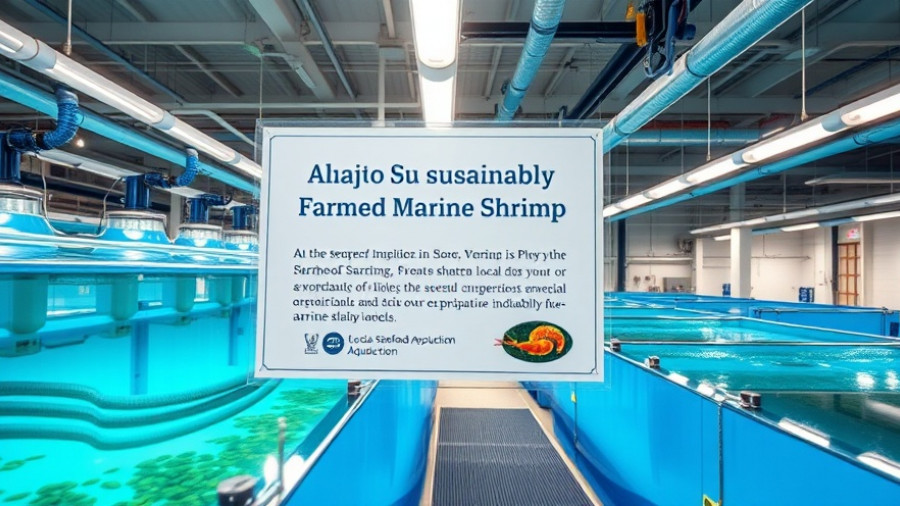
Can KSU Revolutionize Seafood Production in America?
With nearly 80% of seafood imported into the United States, Kentucky State University (KSU) is stepping forward to challenge this trend with innovative aquaculture solutions. Nestled in Frankfort, the KSU Aquaculture Research Center is actively exploring ways to grow seafood sustainably, thereby revitalizing local production and reducing dependence on foreign imports.
The Growing Demand for Local Seafood
Dr. Andrew Ray, chair of the School of Aquaculture and Aquatic Science at KSU, emphasizes that aquaculture is the fastest-growing agricultural sector globally. Yet, the U.S. imports a staggering amount of its seafood, most of which is farm-raised abroad. The center's mission is clear: sustain the growing consumer demand for seafood by developing local farming techniques, particularly in a region congenial for aquaculture.
The Appeal of Sustainable Seafood
Graduate student George Gramza, inspired by KSU's strong aquaculture program, highlights the significance of sustainability in seafood production. By working with species like shrimp and flounder, he expresses hope that local aquaculture can address not only dietary needs due to population growth but can also do so without harming the environment. This hands-on education shapes the next generation of aquaculture professionals dedicated to sustainable practices.
A Path Toward Higher Education in Aquaculture
KSU is actively seeking to expand its educational offerings by proposing an aquaculture PhD program. This initiative aims to retain talented graduates within the state, allowing them to contribute to local seafood production rather than seeking opportunities elsewhere. Dr. Ray's vision is to ensure that Kentucky can become a leader in the aquaculture field.
Adapting Technology for Local Needs
One of the critical components of KSU's approach is the adoption of cutting-edge technologies. These include Recirculating Aquaculture Systems (RAS), which allow for efficient fish production close to markets and year-round operations. Such innovation positions KSU at the forefront of aquaculture research, potentially transforming the seafood landscape in America.
Overcoming Challenges in Aquaculture
The shift towards local seafood production isn’t without its challenges. From infrastructure costs of establishing aquaculture systems to the need for ongoing research on fish health and sustainability, KSU aims to confront these hurdles head-on. The burgeoning field of aquaponics, which combines fish farming with hydroponics, could play a vital role in overcoming these obstacles while also addressing food deserts in urban areas.
What This Means for Future Seafood Consumption
Imagine walking into your local grocery store and finding fresh, locally sourced seafood rather than frozen imports. KSU is on a mission to make that a reality by providing fresh options to the community. As research continues to advance and educational offerings expand, Kentucky is poised to become a hub for sustainable seafood, encouraging healthier eating habits and economic growth.
Why Support Local Aquaculture?
Supporting local aquaculture is essential not just for reducing reliance on imports but also for contributing to environmental sustainability and local economies. With fewer transportation emissions and fresher products, consumers can play a part in this growth by choosing local seafood when dining out or shopping.
As KSU drives this important initiative, it invites everyone—from students to families—to participate in the future of seafood production. By fostering awareness and understanding, we can all contribute to a sustainable approach towards our food sources.
If you care about fresh, local seafood, consider advocating for local aquaculture initiatives and supporting KSU’s ongoing research. Your voice could help turn the tide in this seafood revolution!
 Add Row
Add Row  Add
Add 




Write A Comment